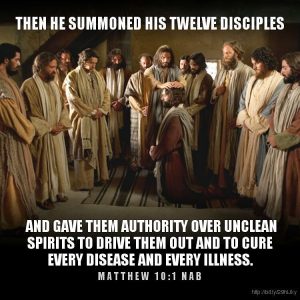

Charity Walk and Sports Week
One of St Edmund’s Catholic Academy traditions is the end of year charity walk. Unfortunately, due to COVID-19, it is unable to take place, but as a school we still wanted to raise money for our three charities, voted for by the students.
The three charities this year are. Compton Hospice, Cancer Research UK and Plastic Oceans.
Students and staff are making their donations through Parent Pay. We thank everyone who has donated.
We have challenged the students and staff to do at least 30 minutes of exercise a day, from walking up and down the stairs, to dancing, gymnastics, walking etc.
‘Do you not know that your bodies are temples of the Holy Spirit, who is in you, whom you have received from God? You are not your own; you were bought at a price. Therefore honour God with your bodies’ – 1 Corinthians 6:19-20
Being Childlike
“I give praise to you, Father, Lord of heaven and earth, for although you have hidden these things from the wise and the learned you have revealed them to the childlike.” Matthew 11:25
Life is complicated. Or is it? That’s a good question. At times things can seem very complicated. Situations we find ourselves in, relationships with family and friends, our future, our past, etc., can all seem burdensome and complicated at times. But the truth is that it doesn’t have to be. The truth is that God’s answers to the most “complex” questions in life are often simple enough for a child to understand.
In the passage above, Jesus affirms that the Father reveals His answers and wisdom to those who are childlike. Interestingly, He also states that the Father has “hidden these things from the wise and learned.” So this begs the question…is it better to be “wise and learned” or “childlike?” Obviously the answer is that it’s better to be childlike.
This may seem confusing at first. It can seem strange to say that it’s not good to be “wise and learned.” But what that means is that it’s not good to be a person who thinks they have it all figured out. It’s not good to be arrogant and a know-it-all. It’s not good to be so filled with pride that we think we have all the answers.
The ideal is to have certain characteristics of a child. In particular, it’s good to be one who is open, curious, and willing to learn. It’s good to look at life in the simplest of ways and to stick to the basics. Sure, it’s good to grow in wisdom and knowledge of the things of God. But true wisdom and knowledge always maintain a certain innocence and simplicity. They maintain a basic goodness and acceptance of right and wrong. Life does not have to be complicated, it needs to become exceptionally simple.
Reflect, today, upon how ready and willing you are to turn to God for the simple and clear answers to life’s most difficult questions. Reflect upon how willing you are to turn to God in trust and hope knowing that God has all the answers to your life.
Lord, once again I turn to You in trust. Help me to realize that all wisdom comes from You rather than myself. Help me to always turn to You as a child would and help my life to remain simple as You desire. Jesus, I trust in You.

It’s Time to Repent!
Jesus began to reproach the towns where most of his mighty deeds had been done, since they had not repented. “Woe to you, Chorazin! Woe to you, Bethsaida!” Matthew 11:20-21a
What an act of mercy and love on the part of Jesus! He rebukes those in the towns of Chorazin and Bethsaida because He loves them and He sees that they continue to hold on to their sinful lives even though He has brought them the Gospel and performed many mighty deeds. They remain obstinate, trapped, confused, unwilling to repent, and unwilling to change their ways. In this context, Jesus offers a wonderful form of mercy. He chastises them! After the passage above He goes on to say, “I tell you, it will be more tolerable for Tyre and Sidon on the day of judgment than for you.”
There is a wonderful distinction here that should help us hear what God may be saying to us at times, as well as help us know how to deal with those around us who habitually sin and cause hurt in our lives or the lives of others. The distinction has to do with Jesus’ motivation for chastising the people of Chorazin and Bethsaida. Why did He do that? And what was the motivation behind His actions?
Jesus chastises them out of love and out of a desire that they change. They did not immediately repent of their sin when He offered an invitation and powerful witness of His miracles, so He needed to take things to a new level. And this new level was a strong and clear rebuke out of love.
This action of Jesus could at first be perceived as an emotional outburst of anger. But that’s the key distinction. Jesus did not rebuke them strongly because He was mad and lost control. Rather, He rebuked them because they needed that rebuke to change.
The same truth can be applied to our lives. At times we change our lives and overcome sin as a result of the gentle invitation of Jesus to grace. But, at other times, when sin is deep, we need a holy rebuke. In this case we should hear these words of Jesus as if they were directed at us. This may be the specific act of mercy we need in our lives.
It also gives us great insight as to how we deal with others. Parents, for example, can learn much from this. Children will regularly go astray in various ways and will need correction. It certainly is proper to start with gentle invitations and conversations aimed at helping them make the right choices. However, at times this will not work and more drastic measures need to take place. What are those “more drastic measures?” Out-of-control anger and vengeful yelling is not the answer. Rather, a holy wrath that comes from mercy and love may be the key. This may come in the form of a strong chastisement or punishment. Or, it may come in the form of laying down the truth and clearly presenting the consequences of certain actions. Just remember that even this is love and is an imitation of Jesus’ actions. This is what we commonly refer to as “tough love.”
Reflect, today, on whether or not you need a rebuke from Jesus. If you do, let this Gospel of love sink in. Reflect also upon your responsibility in correcting the faults of others. Don’t be afraid to exercise an act of divine love that comes in the form of a clear chastisement. It may just be the key to helping those you love to love God all the more.
Lord, help me to repent daily of my sin. Help me to be an instrument of the repentance of others. May I always receive Your words in love and offer them in the form of love that is most effective. Jesus, I trust in You.

13004102 – silhouette of prayer bend to the cross to make a confession
Peace or the Sword?
Jesus said to his Apostles: “Do not think that I have come to bring peace upon the earth. I have come to bring not peace but the sword. For I have come to set a man against his father, a daughter against her mother, and a daughter-in-law against her mother-in-law; and one’s enemies will be those of his household.” Matthew 10:34-36
Hmmm…was this a typo? Did Jesus really say this? This is one of those passages that can leave us a bit baffled and confused. But Jesus does this all the time so we shouldn’t be surprised. So what does Jesus mean? Does He really want to bring the “sword” and division rather than peace?
It’s important when reading this passage that we read it in light of everything else Jesus has ever written. We must read it in light of all His teachings on love and mercy, forgiveness and unity, etc. But with that said, what was Jesus talking about in this passage?
In large part, He was speaking about one of the effects of the Truth. The Truth of the Gospel has the power to deeply unite us to God when we fully accept it as the Word of Truth. But another effect is that it divides us from those who refuse to be united to God in the Truth. We are not intending this and we ought not do so by our own will or intention, but it must be understood that by immersing ourselves in the Truth, we are also putting ourselves at odds with everyone who may be at odds with God and His Truth.
Our culture today wants to preach what we call “relativism.” This is an idea that what is good and true for me may not be good and true for you but that, in spite of all having different “truths,” we can still all be one happy family. But that’s not the Truth!
The Truth (with a capital “T”) is that God has established what is right and what is wrong. He has set His moral law over all of humanity and this cannot be undone. He has also set forth the truths of our faith and those cannot be undone. And that law is as true for me as it is for you or anyone else.
This passage above offers us the sobering reality that by rejecting all forms of relativism and by holding onto Truth, we also run the risk of division, even with those in our families. This is sad and this hurts. Jesus offers this passage especially to strengthen us when this happens. If division happens as a result of our sin, shame on us. If it happens as a result of the Truth (as offered in mercy), then we should accept it as a result of the Gospel. Jesus was rejected and we should not be surprised if that happens to us, too.
Reflect, today, upon how fully you are ready and willing to accept the full Truth of the Gospel no matter the consequences. The full Truth will set you free and will also, at times, reveal the division present between you and those who have rejected God. You must pray for unity in Christ, but not be willing to compromise so as to bring about a false unity.
Lord, give me the wisdom and courage I need to accept all You have revealed. Help me to love You above all things and to accept whatever the consequences are of me following You. Jesus, I trust in You.

Prepare for Persecution
Jesus said to his Apostles: “Behold, I am sending you like sheep in the midst of wolves; so be shrewd as serpents and simple as doves. But beware of men, for they will hand you over to courts and scourge you in their synagogues, and you will be led before governors and kings for my sake as a witness before them and the pagans.” Matthew 10:16-18
Imagine yourself being a follower of Jesus at the time He was preaching. Imagine that there is much excitement about Him and great hopes that He will be the new King and is the Messiah. There would be much hope and excitement about what is to come.
But then, out of the blue, Jesus gives this sermon. He says that His followers will be persecuted and scourged and that this persecution will continue over and over. This must have made His followers stop and seriously question Jesus and wonder if it was worth following Him.
The persecution of Christians has been alive and well throughout the ages. It has happened in every time and in every culture. It continues to be alive today. So what do we do with that? How do we respond?
Many Christians can fall into the trap of thinking that Christianity is all about simply “getting along.” It’s easy to believe that if we are loving and kind then everyone will also love us. But that’s not what Jesus said.
Jesus made it clear that persecution is going to be a part of the Church and that we should not be surprised when this happens to us. We should not be surprised when those within our culture step on us and act maliciously. When this happens it is easy for us to lose faith and to lose heart. We can get discouraged and feel like turning our faith into a hidden life we live. It’s hard to live our faith openly knowing that the culture and world does not like that and won’t accept it.
The examples are all around us. All we have to do is read the secular news to be made aware of a growing hostility toward the Christian faith. For that reason, we need to heed Jesus’ words today more than ever. We need to be aware of His warning and have hope in His promise that He will be with us and will give us the words to say when we need it. More than anything, this passage calls us to hope and confidence in our loving God.
Reflect, today, on how ready and willing you are to face the hostility of the world. You should not react with similar hostility, rather, you must strive to have courage and strength to endure any and every persecution with the help, strength and wisdom of Christ.
Lord, give me strength, courage and wisdom as I live my faith in a world hostile to You. May I respond with love and mercy in the face of harshness and misunderstanding. Jesus, I trust in You.

The Cost of the Gospel
Without cost you have received; without cost you are to give. Matthew 10:8b
What is the cost of the Gospel? Can we put a price on it? Interestingly, we should put two prices on it. The first price is how much it should cost us to receive it. The second price is how much we “charge,” so to speak, to give the Gospel.
So how much should the Gospel cost us? The answer is that it’s of infinite value. We could never afford it monetarily speaking. The Gospel is priceless.
As far as how much we should “charge” to give the Gospel to others, the answer is that it’s free. We have no right to charge or expect anything so as to give away something that we do not own. The saving message of the Gospel belongs to Christ and He offers it freely.
Let’s start with the second half of the Scripture above. “Without cost you are to give.” This tells us that we are to offer the Gospel to others free of charge. But this action of freely giving the Gospel brings with it a sort of hidden requirement. The giving of the Gospel requires that we give of ourselves. And that means we must give of ourselves freely. What’s the justification for giving everything of ourselves freely? The justification is that we have received everything “without cost.”
The simple fact is that the Gospel is all about a total free gift to us which requires a total free gift of ourselves to others. The Gospel is a person, Jesus Christ. And when He comes and lives in us freely, we must then become a total and free gift to others.
Reflect, today, on both your complete receptivity of the Gospel as well as your complete willingness to give. May your understanding and reception of this glorious gift of God transform you into a gift for others.
Lord, may my heart be open to You in a total way so that I may receive You as the Living Gospel. As I receive You, may I in turn give You to others in my very person. Amen.
Miracles and Faith
Jesus summoned his Twelve disciples and gave them authority over unclean spirits to drive them out and to cure every disease and every illness. Matthew 10:1
Jesus gives His Apostles a sacred authority. They were able to drive out demons and heal the sick. They also won many converts to Christ by their preaching.
It’s interesting to look at this extraordinary charism the Apostles had to act miraculously. It’s interesting because we do not see this happen that often today. However, at the beginnings of the Church it seems that miracles were quite common. One reason for this is that Jesus made quite a statement in the beginning to set things in motion. The miracles He did and those of His Apostles were powerful signs of the power and presence of God. These miracles helped the preaching of the Apostles to be more believable and bring forth many converts. It seems that, as the Church grew, miracles in such great numbers were not as necessary for the authentication of the Word of God. The personal lives and witness of believers eventually were sufficient to spread the Gospel without the help of numerous miracles. Martyrdom and acts of great faith became the true signs of God’s presence.
This is helpful to understand because we see something similar in our own lives of faith and conversion. Often times, in the beginning of our faith journey, we have many powerful experiences of God’s presence. There may be deep consoling spiritual feelings and a clear sense that God is with us. But over time, these feelings can start to disappear and we can wonder where they went or wonder if we have done something wrong. There is an important spiritual lesson here.
As our faith deepens, the spiritual consolations we may receive at the beginning can often fade away because God wants us to love and serve Him out of a more purified faith and love. We should believe and follow Him not because He makes us feel good, but because it is good and right to love and serve Him. This can be a difficult lesson to learn but an essential one.
Reflect, today, upon how deep and sustaining your faith is. Do you know and love God even when things are hard and when He seems far away? Those moments, more than any, are the moments when your personal faith and conversion can grow the strongest.
Lord, help my faith in You and my love of You to be deep, stable and strong. Help me to rely upon that faith more than upon any external “miracles” or feelings. Help me to love You first and foremost out of a pure love for You. Jesus, I trust in You.

Irrationality V Normaley
A demoniac who could not speak was brought to Jesus, and when the demon was driven out the mute man spoke. The crowds were amazed and said, “Nothing like this has ever been seen in Israel.” But the Pharisees said, “He drives out demons by the prince of demons.” Matthew 9:32-34
What a stark contrast we see in the reaction of the crowds compared to the reaction of the Pharisees. It’s actually quite a sad contrast.
The reaction of the crowds, meaning normal everyday people, was one of amazement. Their reaction reveals a simple and pure faith that accepts what it sees. What a blessing it is to have this form of faith.
The reaction of the Pharisees was one of judgment, irrationality, jealousy and harshness. Most especially, it is irrational. What would lead the Pharisees to conclude that Jesus “drives out demons by the prince of demons?” Certainly it was nothing that Jesus did that would lead them to this conclusion. Therefore, the only logical conclusion is that the Pharisees were filled with a certain jealousy and envy. And these sins led them to this ridiculous and irrational conclusion.
The lesson we should learn from this is that we must approach other people with humility and honesty rather than jealousy. By seeing those around us with humility and love, we will naturally arrive at genuine and honest conclusions about them. Humility and honest love will enable us to see the goodness of others and rejoice in that goodness. Sure, we will also be aware of sin, but humility will help us to avoid making rash and irrational judgments about others as a result of jealousy and envy.
Reflect, today, on the way you normally think and speak about others. Do you tend to be more like the crowds who saw, believed and were amazed at the good things Jesus did? Or are you more like the Pharisees who tend to fabricate and exaggerate in their conclusions. Commit yourself to the normalcy of the crowds so that you, too, can find joy and amazement in Christ.
Lord, I desire to have a simple, humble and pure faith. Help me to also see You in others in a humble way. Help me to see You and to be amazed at Your presence in the lives of those whom I encounter every day. Jesus, I trust in You.

- Trusting the Almighty
When Jesus arrived at the official’s house and saw the flute players and the crowd who were making a commotion, he said, “Go away! The girl is not dead but sleeping.” And they ridiculed him. When the crowd was put out, he came and took her by the hand, and the little girl arose. And news of this spread throughout all that land. Matthew 9:23-26
Jesus performed many miracles. He overwhelmed the laws of nature time and time again. In this Gospel passage He overcomes death by bringing this little girl back to life. And He does it in such a way that it appears to be quite normal and easy for Him.
It’s insightful to reflect upon Jesus’ approach to the miracles He performed. Many were amazed and in shock of His miraculous power. But Jesus appears to do it as a normal part of His day. He doesn’t make a big deal about it and, in fact, He often tells people to keep His miracles quiet.
One obvious thing this reveals to us is that Jesus does have complete power over the physical world and all the laws of nature. We are reminded in this story that He is the Creator of the Universe and the source of all that is. If He can create all things by simply willing it, He can easily recreate and transform the laws of nature by His will.
Understanding the full truth of His complete authority over nature should also give us confidence in His complete authority over the spiritual world and everything that makes up our lives. He can do all things and can do all things easily.
If we can arrive at a deep faith in His almighty power, and also arrive at a clear understanding of His perfect love and perfect knowledge of us, we will be in a position to trust Him on a level we never knew possible. Why wouldn’t we completely trust Him who can do all things and loves us perfectly? Why wouldn’t we trust Him who knows everything about us and desires only our good? We should trust Him! He is worthy of that trust, and our trust will unleash His almighty power in our lives.
Reflect, today, upon two things. First, do you understand the depth of His power? Second, do you know that His love compels Him to use that power for your good? Knowing and believing these truths will change your life and allow Him to perform miracles of grace.
Lord, I do believe in Your absolute authority over all things and Your complete authority over my life. Help me to trust in You and to trust in Your love for me. Jesus, I do trust



